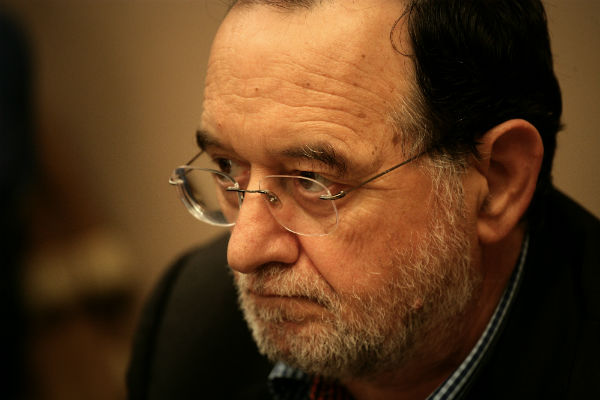Greece’s radicals- Alexis Tsipras, the prime minister, must defy the radicals in his own party as he negotiates with the EU and IMF
The Economist
“WOULD [a Greek exit from the euro] be such a catastrophe?” asked Panagiotis Lafazanis, Greece’s industry, energy and environment minister, at a two-day meeting of the governing Syriza party over the weekend. Mr Lafazanis is the leader of Syriza’s Left Platform, the radical faction of an already radical left-wing party. At the meeting of the party’s central committee, Left Platform argued for an alternative plan to Greece’s ongoing efforts to negotiate an agreement with its creditors: the government should break off the bail-out talks, default on its loans from the International Monetary Fund and prepare the country for Grexit. A strong minority of the central committee’s 350 members backed the radicals’ plan. But ultimately Alexis Tsipras, the prime minister, won support for the government’s negotiating efforts in a show-of-hands vote.
For weeks Mr Tsipras has sounded defiantly optimistic in the face of a worsening cash squeeze and excruciatingly slow bail-out negotiations with the European Union and the IMF. Though Greece’s plight is becoming desperate, Mr Tsipras still insists a deal will be struck with creditors by the end of this week, freeing up €7.2 billion ($7.9 billion) of bailout aid. That would be enough to prevent a default in June on a €1.6 billion loan repayment to the IMF and give the cash-strapped government some breathing room. The talks have made some progress since Mr Tsipras removed his free-wheeling finance minister, Yanis Varoufakis (pictured above arriving at the central-committee meeting on Saturday), from the negotiating process.
Yet Mr Tsipras’s previous assertions that Greece was on the brink of an agreement have all come unstuck. Last week, for example, his aides claimed that Angela Merkel, Germany’s chancellor, would cut the “Gordian knot” of disputed issues at the EU summit in Riga. Instead, Mrs Merkel insisted the IMF, which is seen as more hardline than the EU, would have to approve any bail-out aid. A worried Mr Tsipras immediately asked the American government to try to soften the IMF’s tough conditions for a deal.
Analysts in Athens are sceptical that the government’s inexperienced negotiating team can meet this week’s deadline. The two sides remain far apart on several critical issues. Mr Tsipras came to power at a general election in January pledging there would be no tax increases and no more cuts to wages and pensions. But the creditors want immediate cuts in supplementary pensions, as well as a faster timetable for raising the retirement age to qualify for full pensions from 52 to 67. Value-added tax is another problem, with the Greeks opposed to the creditors’ demands for changes that would yield an extra €3 billion-€4 billion of income. “Only a capitulation by Mr Tsipras could ensure a quick resolution [of the bail-out negotiations],” says a Greek veteran of previous negotiating rounds with the EU and IMF.
As the struggles at the central-committee meeting showed, some prominent members of Syriza are equally unconvinced by the premier’s upbeat messages. Nikos Voutsis, the tough-talking interior minister, told a private television channel at the weekend that without a deal, Greece would not be able to pay pensions and public-sector wages at the end of May while also meeting its IMF loan obligations. He claimed a default was legitimate because Greece was being blackmailed by its creditors.
The radicals within Syriza represent perhaps 35% of the party’s members. They include Marxists and ex-communists (such as Mr Lafazanis), as well as a few Maoists and devotees of the late Venezuelan president Hugo Chavez. There are also several weightier figures, such as John Milios, an economist who last week called for suspending loan repayments. The rebels control only 20-30 of Syriza’s 149 seats in parliament, but that could be enough to deny the government a majority, should a bail-out deal come up for a vote.
So far, Mr Tsipras has been able to keep his party on side, in part by staging noisy shows of defiance towards the EU and IMF even as he negotiates with them. The risk is that these shows of defiance may turn into a failure to make payments. Would this be a catastrophe? If the brinksmanship continues, Mr Lafazanis may soon learn the answer to his provocative question.



















